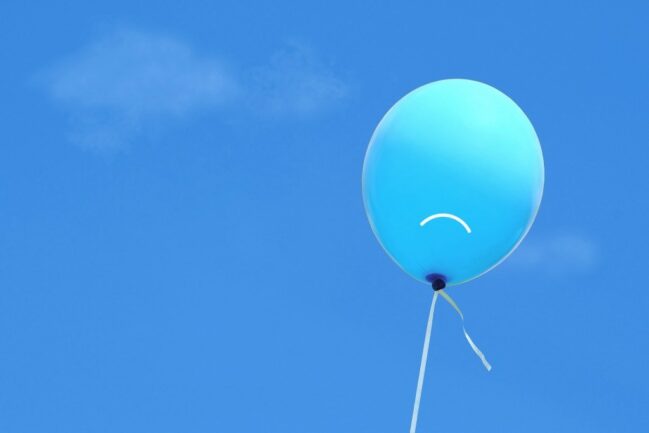Blog
What is Blue Monday and why is it depressing?
December 8, 2021
3 minutes, 34 seconds

The third Monday in January is thought to be the saddest date on the calendar, with people calling it Blue Monday and the most depressing day of the year.
In a survey carried out by Mind, Depression is a diagnosis that 3 in 100 people will receive in any given week. So, what’s to say that Blue Monday is more ‘depressing’ than any other day? If you found yourself struggling from January blues, we’ve explored the potential reasons why.
What is Blue Monday and why is it the most depressing day of the year?
The term Blue Monday was reportedly coined in 2005 by psychologist Dr. Cliff Arnall and published in a press release by Sky Travel. When asked to come up with a ‘scientific formula’ for the January blues, he determined Blue Monday to be the saddest day of the year due to:
- The dark nights
- Bad weather
- Post-Christmas debt
- Disappointment from not sticking to new year’s resolutions
Effectively, the idea of Blue Monday came about as a method to sell holidays. There is no scientific evidence behind it and many mental health experts dismiss it, stating it trivialises depression.
What is Blue Monday about?
Since the ad campaign for Sky Travel, which told people when the saddest day of the year was to sell holidays, many other businesses have jumped on the bandwagon. It has now partly become a PR event that many businesses use to promote products or ideas that are linked to health and wellbeing.
With no scientific evidence or studies to back up the claims of Blue Monday, it’s safe to say there is no such thing as the most ‘depressing’ day of the year. Even Dr. Cliff Arnall, who came up with the term, said that it should be taken with a heaped teaspoon of salt.
While Blue Monday has no logical basis, the wider idea of the ‘January Blues’ does. Professor Ed Watkins from the University of Exeter’s Mood Disorders Centre explained that cultural expectations of festive celebrations and resolutions can leave people feeling inadequate. He said: “For people who are isolated or finding these activities difficult for whatever reason, this stark contrast can make them feel inadequate and blue.”
“Add to that wind, rain and cold weather, Christmas debts and failed New Year’s resolutions, and it’s no surprise people can find themselves feeling miserable and low at this time of year.”
What date is Blue Monday?
Blue Monday falls on the third Monday in January.
As a way to turn Blue Monday on its head this year, the mental health charity Samaritans changed the name to Brew Monday, encouraging people to have a chat with family and friends over a virtual cup of tea. While another charity, the Mental Health Foundation, encouraged ‘random acts of kindness’ to help improve wellbeing. Mental health charity Mind also tweeted to say: “Depression doesn’t care what day it is”, with a link to their resources.
If there is any positive to take out of this completely made-up term, it’s that for some, it gives them the chance to open up and discuss mental health, depression and ways to help.
Mental health ‘good and bad’ days
Everyone has good and bad days throughout the year, which is why choosing a set date for the most depressing day of the year is pointless. This year especially, the need to take care of one another is extremely important. The pandemic has caused many to lack social communication and financial security, increasing mental health problems across the country.
It’s also important to distinguish the difference between depression and mental health problems with feeling down or having a low mood, which everyone can relate to from time to time.
Despite the fact that Blue Monday is a myth, it is true that there can be seasonal variations to mental health. Seasonal Affective Disorder, also known as SAD, is a type of depression that is triggered by reduced exposure to sunlight during the winter months.
Read our blog – What is Seasonal Affective Disorder & How to Know if you have it to find out more.
Seek help today
If you would like to find out more about depression and how you can help those dealing with this mental health condition, visit Chrysalis Courses today.